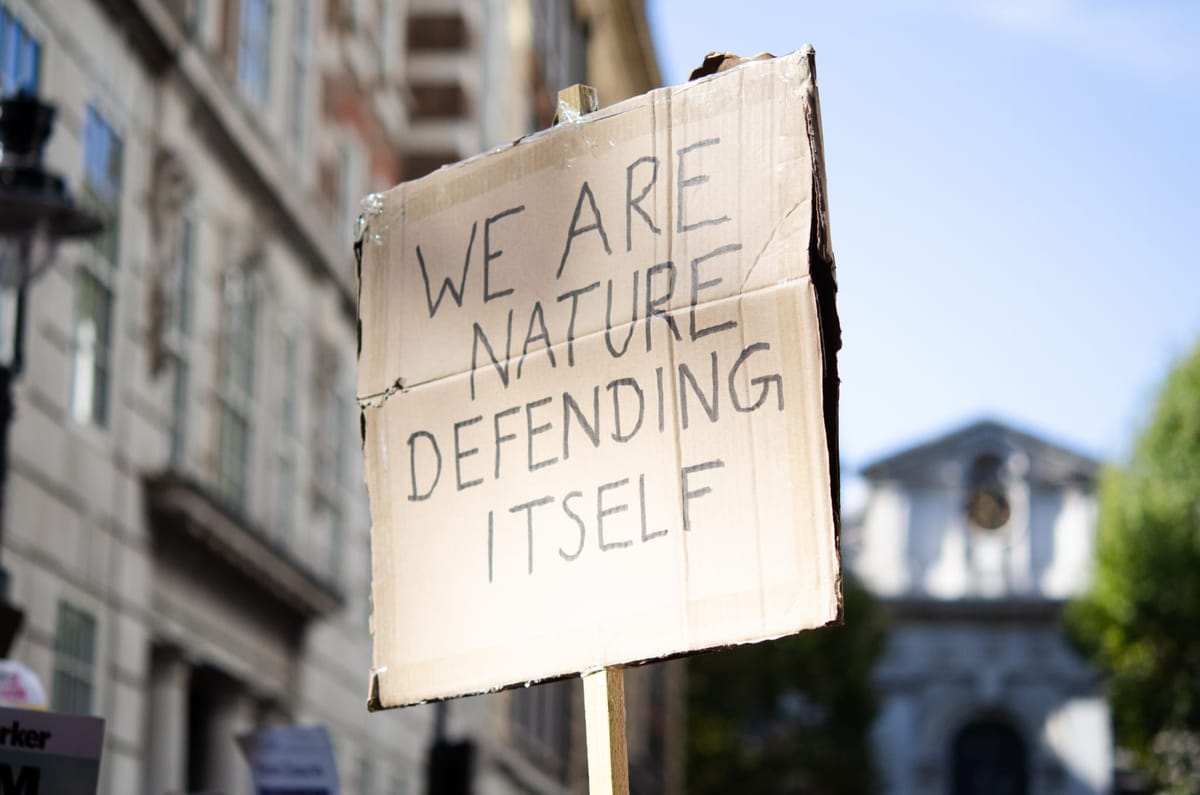Resilience is Coming

By Leehoo Benaya Pansky, LLB
The environmental arena is filled to the brim with frameworks – not targets. Instead, structures exist meant to facilitate fictitious targets. I’ve always found that at the root of these is the overarching framework of discourse. Language is a powerful tool and invoking certain phrases within environmental debate signifies direction, concepts and structures meant to solve the very looming fate of environmental degradation.
Take for example environmental principles, sprinkle them into legislation, and suddenly it begins to shape policy, and cultural attitudes. Or ‘sustainability’ – a phrase we have come to hear countless times either by itself or with its neoliberal best friend: development. Does this language ever amount to something? Discussion regarding this will inevitably digress into a heated debate.
Nonetheless, I have come to fear a different phrase, one which I see as more than a hollow promise, requiring precautions designed to self-defend. Resilience. Webster’s dictionary defines resilience as…… no, I think we are all aware of the definition of resilience. Enduring through difficult times might be the first thing that comes to mind.
Yet, within the realm of environmental discourse resilience signifies something a little different, or perhaps precisely not. The discussion of resilience is in no way a new one, neither is the criticism I’m about to part-take in yet I find this discussion essential for two major reasons.
Firstly, while resilience has long been around, the use of it in discourse has begun to increase. The first example that comes to mind is its use in the Draft Environmental Principle Policy Statement, which accompanies the Environmental Bill. Secondly, because I see the significance of resilience as much more pertinent today than earlier discussions of the concept which made it a simile for false optimism. In comparison to today, where the sinking realisation that global ‘efforts’ to address environmental degradation have failed. This is because the aforementioned frameworks have not functioned with the level of ‘efficiency’ initially predicted.
I find that there are two broad definitions which resilience has within environmental discourse. It can either be a reference to a social-ecological system’s ability to continuously change while remaining within the tipping point – threshold. Or, the idea of surviving but not thriving. Both may seem similar yet they open doors for two fatal difficulties.
It fails to propose remedy or mitigation of our current reality, it avoids radical change of a pessimistic reality, something only the privileged can afford.
The former accepts the status quo. It maintains that if we accept it, we can stay. It fails to propose remedy or mitigation of our current reality and avoids radical change of a pessimistic reality – something only the privileged can afford. Importantly, even acceptance of such pessimism is futile as it rests on the assumptions that the ecosystems around us can be predictable in some sense. The latter is equally damaging, entering policy and culture into a stay of life-boat ethics. This makes people, *cough cough* the global south, the financially disadvantaged and non-white people expandable.
Resilience is unacceptable, not because I’m some big time optimist who believes that we can get out of this mess on the back of some misconstrued framework of sustainability, but because the alternative is unacceptable. Yet, this term has crept into legislation and policy in all areas. Perhaps more importantly, it is about to make a grand appearance at a certain conference.
COP26 is here and with it resilience. I do not purport to be some kind of expert, I’m just an over-caffeinated university student. Yet, it seems inconceivable to me that resilience will not be a key word in COP26. Put differently what’s more likely: world leaders come together in a blaze of glory to radically reform the international arena and take capitalism from within the state apparatus which supports it, entering the world into a new age of harmony and equity, sort of like the series finale of ATLA.
Orr…. that they will adopt discourse which not only legitimises the status quo but further justifies future oppressive policies. Again, I’m no expert so I’ll leave that question for all of you to mull over. Until then, I just wanted to get on this horse, ring a bell, and scream resilience is coming, resilience is coming.
Photo caption/credit: A poster from a protest in London (Credit: Gabriel Rahman).



